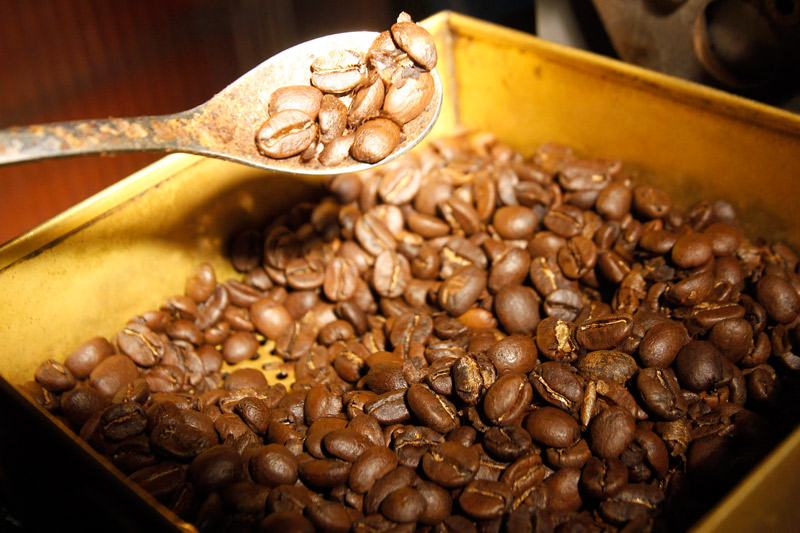Investing.com - Coffee futures regained strength on Tuesday, as the previous day’s steep decline to an 18-month low created bargain buying opportunities for investors, though further downside was seen.
On the ICE Futures Exchange, Arabica coffee for July delivery traded at USD1.7713 a pound during early U.S. morning trade, climbing 0.44%.
It earlier rose by as much as 1.25% to trade at a session high of USD1.7832 a pound. Prices dropped to USD1.7390 a pound on Monday, the lowest since October 8, 2010.
Coffee prices have lost nearly 23% since the start of 2012 and are down almost 14% since the beginning of March, as traders eyed a huge harvest in top grower Brazil and speculators pushed prices lower.
Favorable weather conditions in Brazil during the growing season has fuelled speculation that the country will produce a record coffee-bean crop.
Brazilian agricultural forecasting agency Conab said last month that it expected Brazil's upcoming 2012-13 Arabica coffee crop to reach 52.3 million bags.
That would exceed a record 48.5 million bags in 2002. A bag of coffee weighs 60 kilos (132 pounds).
The downward trend in coffee prices started in mid-February and has accelerated as the crop calendar moves closer to the Brazilian harvest, which starts in late May and early June in most parts of the country.
Speculation that Brazilian growers, who had been holding out for higher prices, are now selling supplies in an effort to clear out stocks before the new harvest begins further added to selling pressure in recent weeks.
Brazil is the world's largest producer and exporter of Arabica coffee. Arabica is grown mainly in Latin America and brewed by specialty companies.
Expectations for a record Brazil crop have overshadowed concerns over lower coffee-bean production in Colombia for the past few months.
Colombia's coffee output fell 27% during the 12-month period through March, the National Federation of Coffee Growers, or Fedecafe, said last week.
Colombia is the second biggest grower of the Arabica beans.
Meanwhile, technical traders noted that prices could fall to as low as USD1.6555 a pound in the near-term, should prices breach below a key support level close to USD1.7350.
Elsewhere, on the ICE Futures Exchange, cotton futures for May delivery added 0.4% to trade at USD 0.8844 a pound, while sugar futures for May delivery rose 0.68% to trade at USD0.2307 a pound.
On the ICE Futures Exchange, Arabica coffee for July delivery traded at USD1.7713 a pound during early U.S. morning trade, climbing 0.44%.
It earlier rose by as much as 1.25% to trade at a session high of USD1.7832 a pound. Prices dropped to USD1.7390 a pound on Monday, the lowest since October 8, 2010.
Coffee prices have lost nearly 23% since the start of 2012 and are down almost 14% since the beginning of March, as traders eyed a huge harvest in top grower Brazil and speculators pushed prices lower.
Favorable weather conditions in Brazil during the growing season has fuelled speculation that the country will produce a record coffee-bean crop.
Brazilian agricultural forecasting agency Conab said last month that it expected Brazil's upcoming 2012-13 Arabica coffee crop to reach 52.3 million bags.
That would exceed a record 48.5 million bags in 2002. A bag of coffee weighs 60 kilos (132 pounds).
The downward trend in coffee prices started in mid-February and has accelerated as the crop calendar moves closer to the Brazilian harvest, which starts in late May and early June in most parts of the country.
Speculation that Brazilian growers, who had been holding out for higher prices, are now selling supplies in an effort to clear out stocks before the new harvest begins further added to selling pressure in recent weeks.
Brazil is the world's largest producer and exporter of Arabica coffee. Arabica is grown mainly in Latin America and brewed by specialty companies.
Expectations for a record Brazil crop have overshadowed concerns over lower coffee-bean production in Colombia for the past few months.
Colombia's coffee output fell 27% during the 12-month period through March, the National Federation of Coffee Growers, or Fedecafe, said last week.
Colombia is the second biggest grower of the Arabica beans.
Meanwhile, technical traders noted that prices could fall to as low as USD1.6555 a pound in the near-term, should prices breach below a key support level close to USD1.7350.
Elsewhere, on the ICE Futures Exchange, cotton futures for May delivery added 0.4% to trade at USD 0.8844 a pound, while sugar futures for May delivery rose 0.68% to trade at USD0.2307 a pound.
